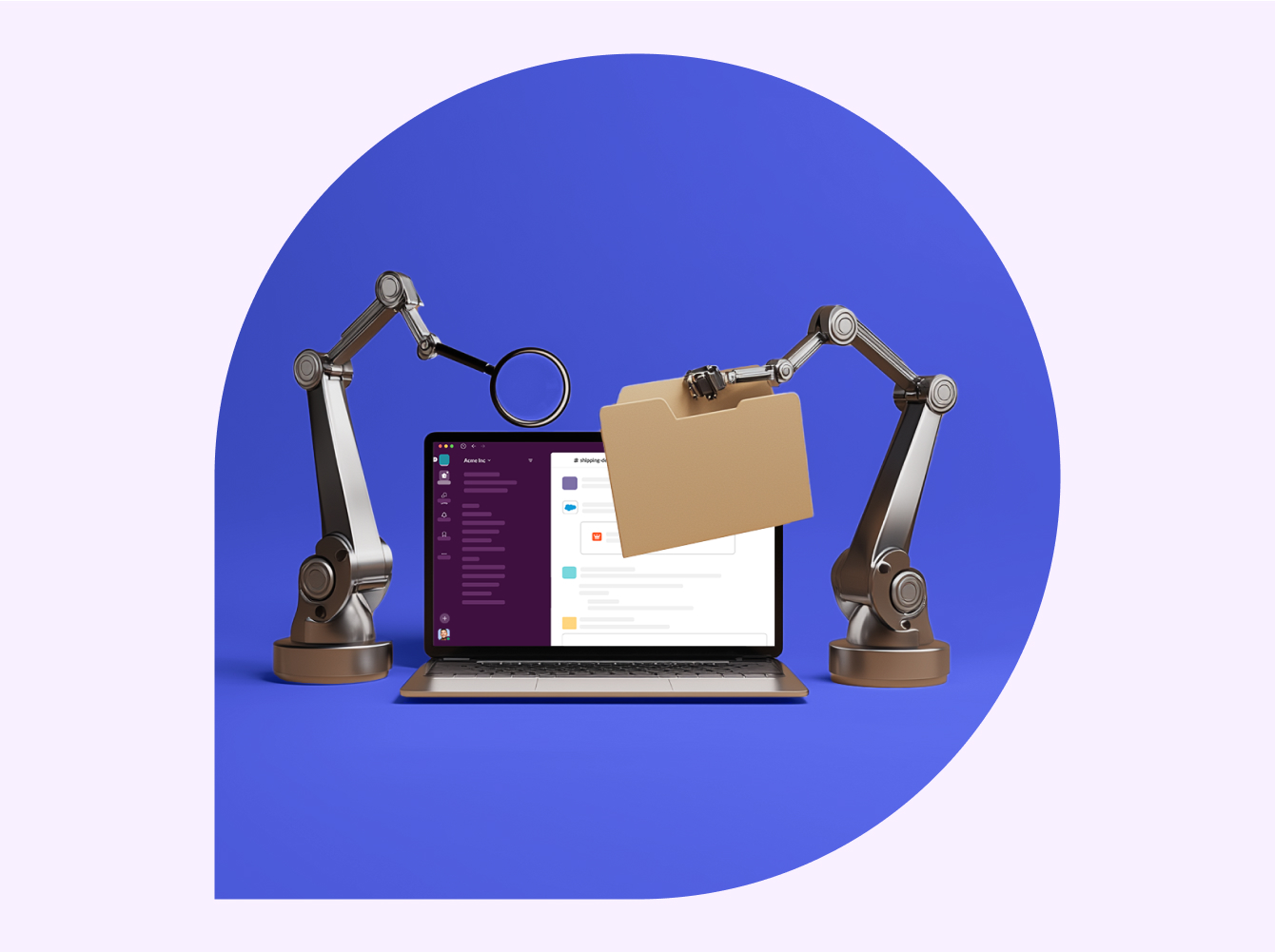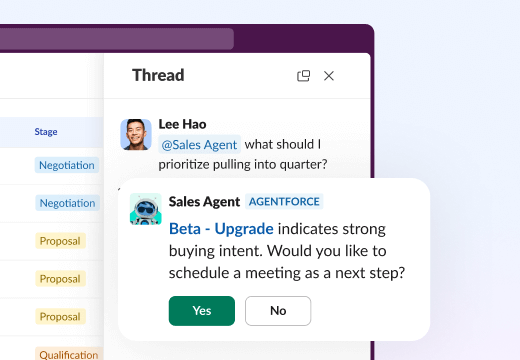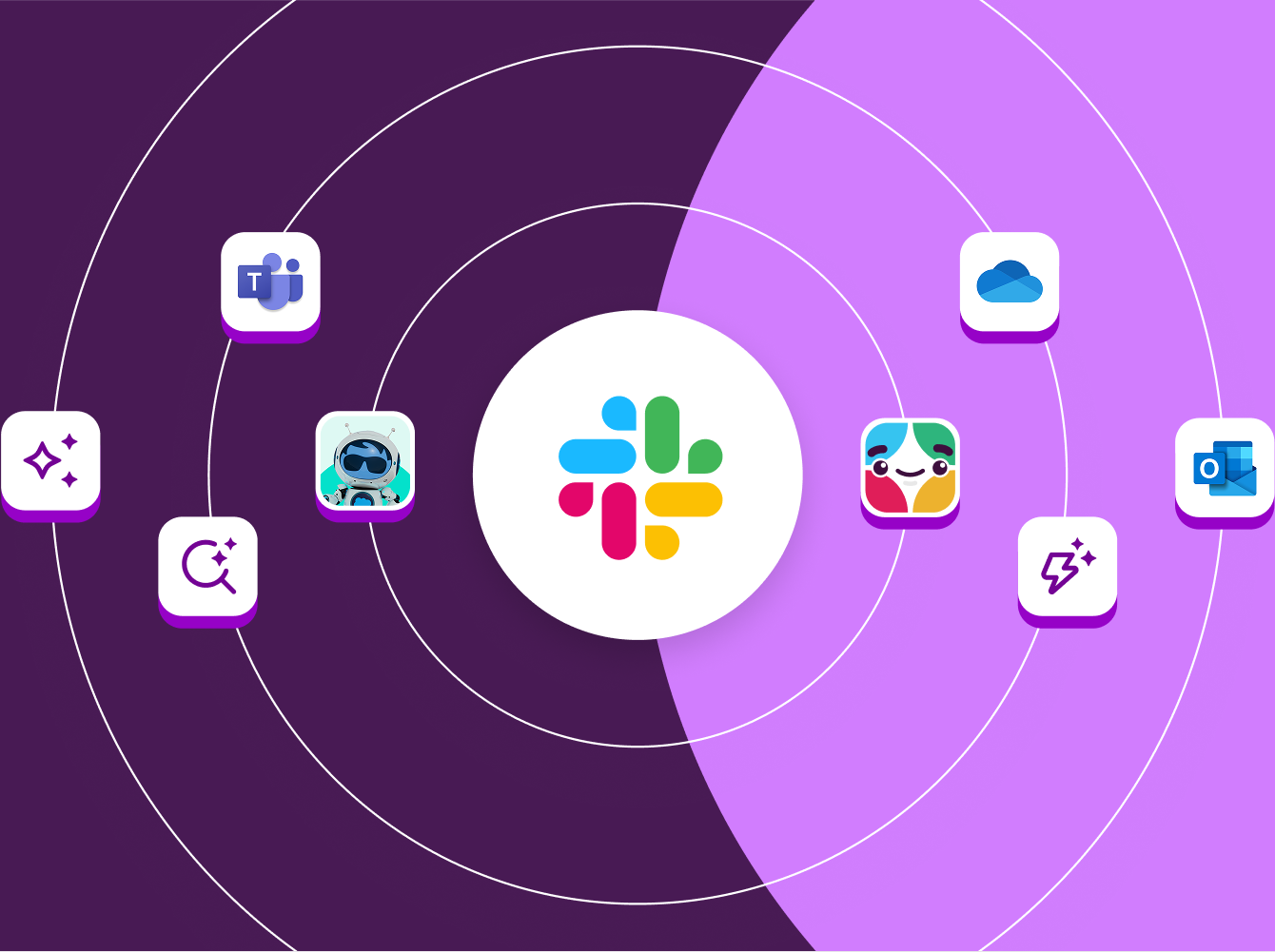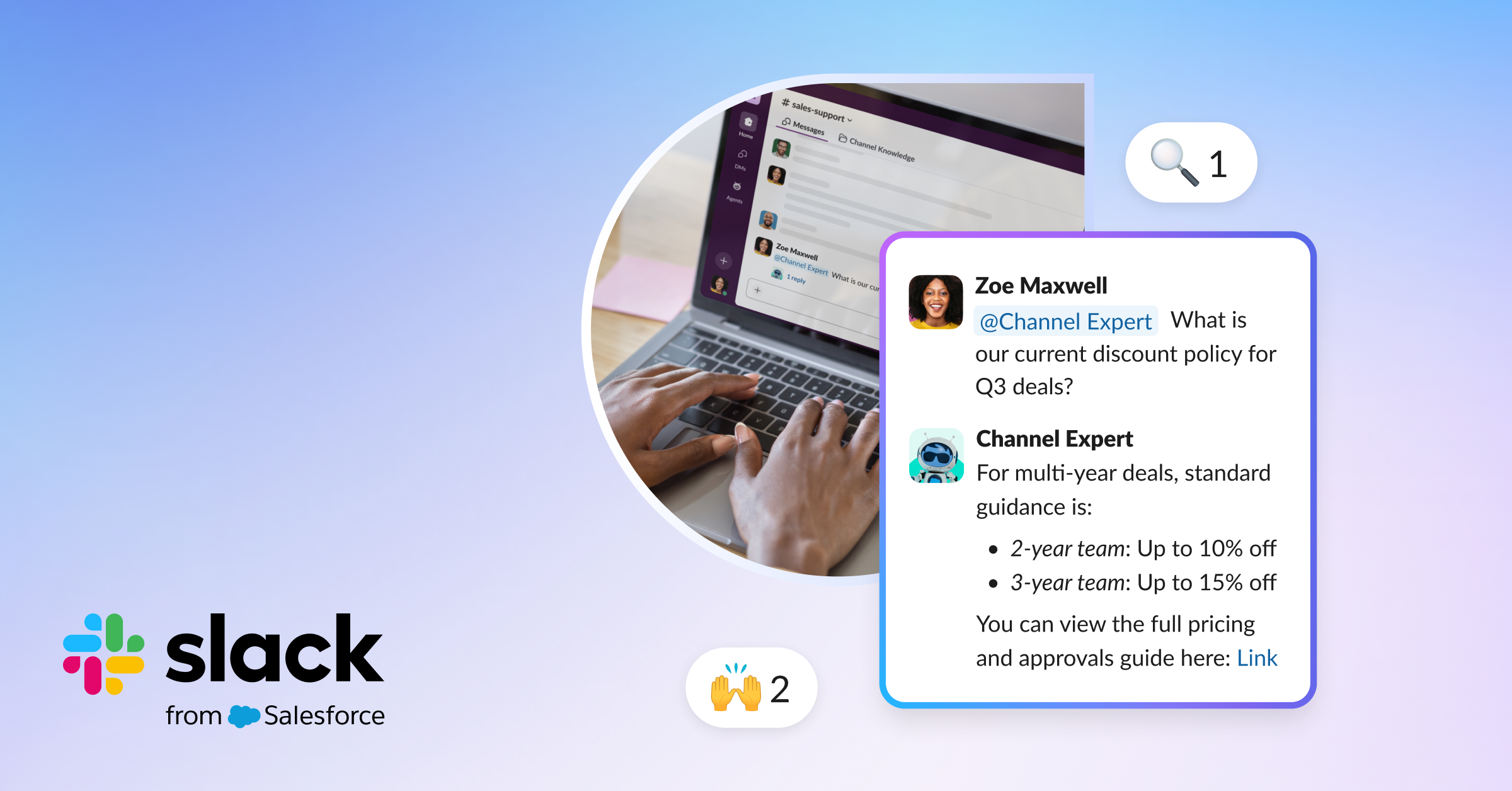Your team is drowning in busywork. Employees spend hours hunting for information, waiting on approvals, and answering the same questions over and over. Meanwhile, the work that actually moves your business forward keeps getting pushed to tomorrow.
Employee-facing AI agents are designed to fix exactly that. Think of them as digital assistants that find information in seconds, automate repetitive tasks, and help solve everyday problems — freeing up your team to focus on work that matters.
In this guide, we’ll show you how AI agents are helping teams work more efficiently and make better decisions faster. Whether you’re just starting to explore AI or looking for ways to boost productivity, you’ll learn practical ways these tools can transform your workplace.
What is an employee-facing AI agent?
An employee-facing AI agent is an AI system designed to assist employees with internal tasks and processes. They are more than just data-fetchers; they are digital teammates that can help you plan and execute complex tasks across different applications.
Employee-facing AI agents vs. customer-facing AI agents
Employee-facing and customer-facing AI agents serve different purposes:
- Purpose: Employee-facing agents are purpose-built for internal operations, focusing on streamlining internal workflows from HR processes to project management.
- Personalization: : Employee agents are context-aware, meaning they provide faster and more accurate responses.
- Context : These agents can tap into connected third-party apps like Google Drive, Microsoft OneDrive, and Asana, alongside internal messages and shared files. This real-time search capability provides them with a rich, contextualized view of an organization’s work.
- Purpose: Autonomous agents that engage customers across service, sales, marketing, and commerce — going beyond chatbots to reason, make decisions, and take action
- Personalization: Deliver personalized customer experiences while maintaining consistent brand voice and seamlessly handing off to human agents when needed.
- Context: Access comprehensive customer data including interaction history, preferences, and account information to provide accurate, contextual responses and proactive support.
Consider practical examples: A sales agent can draft personalized follow-up emails and create proposals. An HR agent can create onboarding checklists for new hires and answer policy questions. An IT agent can manage incident communications and resolve help-desk tickets.
A real-world example is reMarkable, a technology company that uses Agentforce to instantly answer IT questions, reset passwords, and file Jira tickets right from within Slack, freeing up employees to focus on more creative work.
Why employee-facing AI agents are essential for modern work
Organizations in industries adopting AI into their operations see a 3x higher growth in revenue generated by each employee. (source: PWC) That’s because early adopters know that AI doesn’t replace employees – it scales each employee’s output, creating exponential productivity and growth.
Employee-facing AI agents act as proactive digital teammates that can:
- Understand what’s really happening: They analyze multiple data sources to grasp context, such as identifying a project is behind schedule from a conversation.
- Think through complex problems: Instead of providing a single answer, agents can create detailed plans. For example, they could map out status checks and risk planning for a product launch.
- Take action across all your tools: Agents can pull relevant data from Salesforce, update project timelines, schedule meetings, and share summaries in Slack—all from a single request.
By working together, humans and AI can achieve things neither could on their own.
Benefits of bringing employee-facing AI agents into your workplace
Employee-facing AI agents can take your work and productivity to the next level, automating processes and freeing you up for more strategic tasks.
Boost employee productivity
With AI agents at their command, workers can achieve much more – producing more, with more context, and adapting faster. Slack’s Workforce Index survey found that most AI users (96%) report that they’ve used AI to perform tasks they couldn’t have otherwise done themselves, and 30% cite this as a top reason for their increased productivity.
Instead of spending 30 minutes reading through a lengthy Slack thread, an employee can ask an agent to provide a concise summary with key decisions and action items. When preparing reports, agents can automatically pull relevant data from multiple systems and take the first pass at drafting content sections. Advanced agents don’t just respond to requests—they anticipate needs, notice when project deadlines approach, and automatically notify stakeholders.
Reduce context-switching
One of the most significant drains on workplace productivity is the constant need to switch between applications. A recent Gartner survey found that 47% of knowledge workers struggle to find the information they need to do their job effectively.
AI agents in Slack surface personalized answers conversationally in the flow of work, grounding answers in data stored in Slack as well as r existing tools and communication tools, eliminating friction between systems and reducing context switching for team members. With a digital teammate that can surface insights, update systems, and coordinate workflows across tools, there’s no need to chase down updates manually.
Democratize expertise
Perhaps the most transformative benefit is how agents can democratize institutional knowledge across your organization, scaling knowledge and productivity for all employees. Every company has valuable knowledge stored in documents, conversations, and the minds of key employees. Agents securely access this knowledge and make it accessible to everyone.
Instead of hunting through policy documents, employees can ask agents questions in natural language and receive immediate, accurate answers. When new employees ask “Why did we choose this vendor?” an agent can reference past evaluation discussions and decision criteria. Unlike static knowledge bases, agents dynamically update their understanding based on new information and changing policies.
Types of employee-facing AI agents in Slack
Slack’s conversational interface makes it the natural home for employee-facing agents. Agents operate in the same channels where teams already work, using the full context of messages, files, workflows, and shared knowledge to deliver faster, more accurate responses.
Agentforce in Slack: your digital labor force
Agentforce agents represent Salesforce’s powerful AI solution that brings intelligent digital teammates directly into your Slack workspace. These purpose-built agents can be deployed immediately with a pre-built Channel Expert that provides assistance in team channels, built from templates for common business functions, or customized for specific needs.
Key Benefits:
- Connect to your enterprise data through Salesforce, Data Cloud, or other integrated systems
- Deploy quickly using templates for IT support, HR, sales enablement and more
- Deploy fast for imemdiate value with Channel Expert, a pre-built Slack agent that responds to FAQs and surfaces trusted resources
- Do work and take action across systems while maintaining conversation in Slack
- Provide personalized responses based on user permissions and context
Salesforce’s internal rollout of Agentforce in Slack is now on its way to saving 500,000 hours annually across the business. Following six months of testing, 86% of Salesforce employees lean on Agentforce to get answers and take action in Slack.
Agentforce agents shine in complex workflows that require deep integration with your business systems. For example, at Salesforce, a Sales Agent helps over 25,000 sellers save a projected 203,000 hours annually by providing instant access to critical deal insights, pricing information, and competitive intelligence directly within Slack.
Custom agents: tailored solutions
Custom agents are bespoke solutions built specifically for your organization’s unique workflows and requirements. These agents use Slack’s APIs and development tools to provide answers and perform actions that are grounded in data from your unique datasets.
Key Benefits:
- Build what you need with customization tools
- Integrate with internal systems that may not have pre-built connections
- Create unique interaction patterns tailored to specific teams
- Integrate cutting edge tools like RAG and vector databases to ground agent responses in your organization’s data
Plative, a global tech consulting firm, significantly boosted productivity by implementing three custom Agentforce AI agents in Slack for their sales team. These agents, including an Account Research Agent, Call Prep Agent, and Summary Agent, led to impressive results. The firm experienced a 50% reduction in sales call prep time and a 50% increase in upsell bookings, while also avoiding the need to hire one full-time equivalent for every five consultants added.
Employee-facing agents are ready to work for you
Employee-facing AI agents do more than just automate tasks—they’re changing how we experience work itself. Salesforce research found that 54% of global workers now trust humans and AI to collaborate on most tasks, emphasizing how important it is for businesses to deploy AI in a thoughtful, responsible way that builds user confidence.
Employee-facing AI agents work best when they’re built into the platforms and processes your team already uses. When agents can join your team conversations naturally and work across all your business apps, they stop feeling like tools and start acting like actual teammates.
The future of work isn’t just about choosing between humans or AI. It’s about teaming up to work smarter, not harder, and achieve things neither could do on their own.
Want to see how employee-facing AI agents can transform your workplace? Learn more or contact us to get started.











